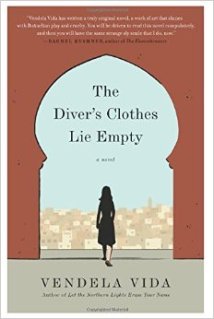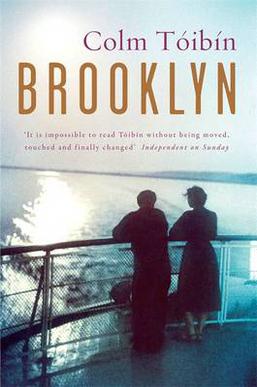YES. In fact, I don’t see how you could read this book and NOT discuss it–really digging deep like we do in our Literary Masters salons–with others. Life After Life by Kate Atkinson was the October selection for Literary Masters book groups and salons, and it was a hit!
This book not only cries out for a post-reading discussion, it also demands to be read twice. Honestly, the second reading makes all the difference–and makes the first reading worth the time. So what can your book club discuss?
THIS POST CONTAINS SPOILERS!!!
Warp speed plot summary:
Set mainly in England between 1910 and 1967, this novel tells the story of Ursula Todd and her family who live at Fox Corner. The thing is, Ursula is a very unique character; she keeps dying and coming back to life. Each time she returns, the life she leads is different from the one before. Sometimes it’s slightly different, and other times it’s radically different. So what is going on? We readers wonder this as we follow Ursula through her many lives and through the history of the time, especially the wars and the Blitz.
If this sounds like science fiction or fantasy to you, I would argue that it is not. This book is so well done–as a piece of realistic fiction that is also perhaps a thought experiment–I urge you to give it a try. Twice!
Your book club should “dig deep” into the following:
Two main things seem to be going on in this book: the exploration of philosophies or life beliefs, and a telling of the history of England. As for the first:
You’ll want to really ask yourselves: what is going on with Ursula? Is she being reincarnated? Is she living parallel lives? Is there some sort of circularity happening, or is it more like a palimpsest? Is the book saying anything about all of the above? Or is it merely exploring all these concepts? A good place to start is to ask yourselves: Is Ursula conscious of what is going on? Is she consciously making choices in her life that set her on a different course?
Or is she dreaming? Or crazy?
Related to all of the above, you’ll want to discuss the idea of eternal recurrence. Read the epigraph together and talk about the importance of Nietzsche‘s concepts. (If you don’t have a philosophy major in your group, just do a bit of googling!)
Whatever you decide is happening with Ursula, is it also happening with the other characters? Why, for instance, does Ursula’s mother have scissors at one of the births? What does this mean if it is happening with all the other characters?
These questions will no doubt carry you into the area of fate vs. randomness. You’ll want to discuss how much agency or free will Ursula and the other characters have. How much free will do you think YOU have? Is your life fated, or are you its master? What is the book saying about this? Is there a point to Ursula living her life over and over again? Does she learn to improve it in any way? Or is that irrelevant? Is she finding ways to have agency over her fate? Is that even possible?
Another major concept you’ll want to explore is whether there is a core or essence to a person. Is there a core to Ursula? Is she essentially the same throughout all her lives? Or is her identity shaped largely by her experiences? Which points in the book do you think are pivotal with regard to Ursula’s identity?
What about the other characters? Does each one change depending on the life that s/he is experiencing? Two interesting characters to “dig deep” into are Sylvie and Izzy. This touches on the history of England aspect of the book also. Think about the change from a traditional, pastoral, idyllic England (set in cozy Fox Corner) morphing into a modern, post-war, industrialized England. Where do Sylvie and Izzy fit in this picture? Where do the others fit, and what is the book saying about this change?
This may take you into a discussion of the role of women and what choices they had at different times of history.
You’ll want to discuss how the wars and particularly the Blitz are almost characters in the book. There are graphic scenes of devastation in England but also in Germany, when Ursula and Frieda are victims of the Allied bombing. What is the point of this juxtaposition? Ursula has a crush on her Jewish neighbor in England but marries a German Nazi in another life. Izzy’s son is adopted by a German couple so could be dropping bombs on England while Teddy is dropping them on Germany. What point is the book making?

You’ll no doubt want to discuss the imagery in the book. What significance does snow have? What about all the animals? Ursula means little bear, Teddy is a teddy bear, Hugh refers to Pooh bear–what’s up with the bears? What about foxes? What does Fox Corner represent and why is it called that? Ursula’s last name is Todd, which means fox! Yet she transforms into Miss Woolf on p.446–what does that mean? There are many wolves, especially in the German section. Adolf means wolf. However, Ursula marries Jurgen Fuchs, which means fox! And as I just mentioned, she admires and transforms into Miss Woolf! Foxes vs. wolves–significant?
There is much more imagery to explore–you will no doubt come up with many more questions than answers! Kate Atkinson seems to be, among other things, having fun with all the names in the book. And you’ll want to discuss all the literary references. Is Maurice purposely named? Are we meant to think of E.M. Forster’s “homosexual novel” and thus make the connection that Maurice is a closeted gay man whose repression of his true self has resulted in his being a mean person? Is Pamela purposely named? Are we meant to think of Samuel Richardson’s novel Pamela: Or, Virtue Rewarded? Is she virtuous? Does she get her reward? Is the Miss Woolf mentioned above supposed to make us think of Virginia Woolf?
You’ll want to discuss Hitler. What role does Hitler play in this book? Why does the book start with the scene that it does? Does Ursula kill Hitler?
You’ll also want to discuss the book as a meta-fiction. Talk about how it’s exploring the writing process itself. You can start with the chapters titled “Snow,” where every story starts over; they are like a clean sheet of paper.
This book was like a Rorschach test. I think Stanley Fish would have enjoyed observing the many Literary Masters salons in which members read their own experiences into this novel. The interpretations were wide-ranging and fascinating–I could go on and on discussing this book and discover new ways of looking at it each time. In that way, it’s very much like life.
There is so much more to this book, but time is flying and I must attend to other aspects of this life I am living. Hopefully this will get you started in your discussion! Let me know how it goes!












_1.jpg)














_-_Google_Art_Project.jpg)
